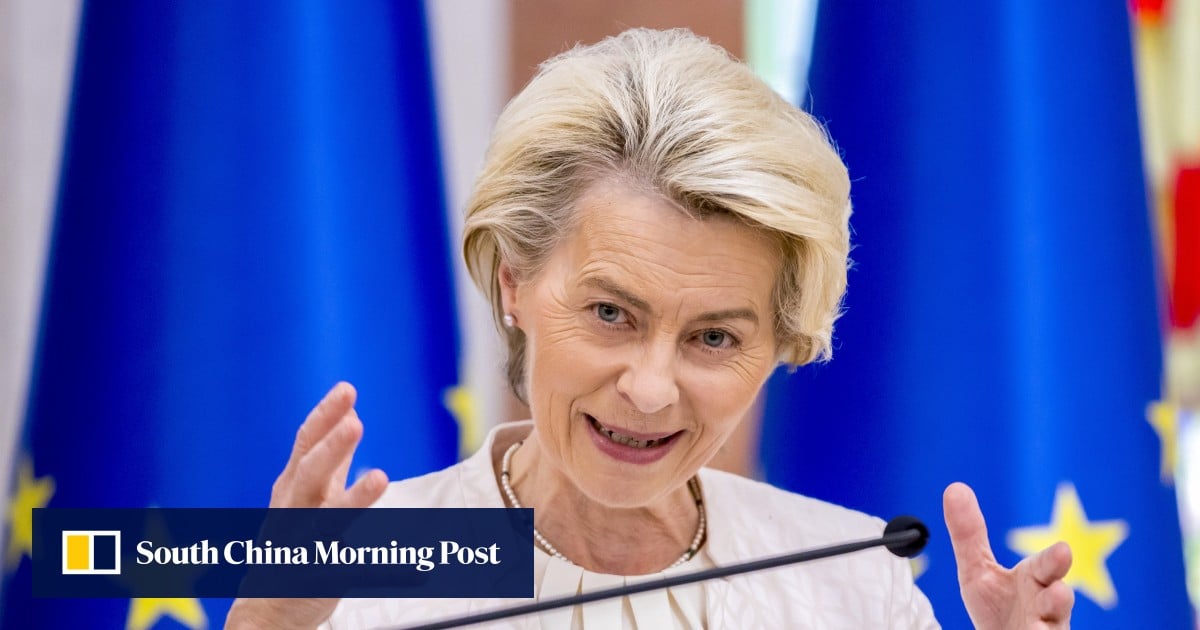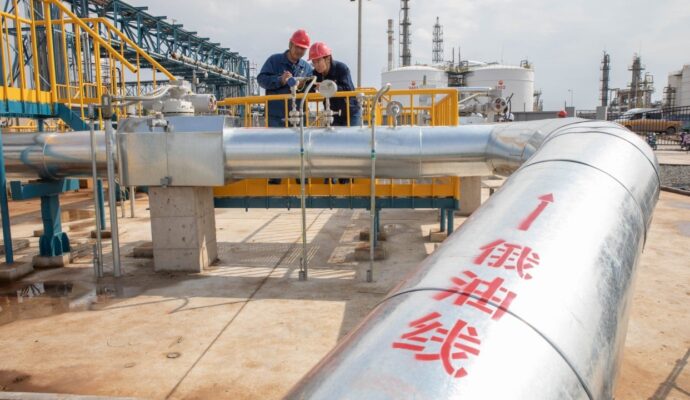
While it does not name China directly, decisions relating to economic security will be taken with a geopolitical filter, with Beijing sure to be key to that thinking.
“The obvious candidates when we are using this sort of geopolitical filter when being country agnostic, what comes out is obviously China and Russia,” said EU competition chief Margrethe Vestager.
It can therefore be seen as the first crystallisation of EU Commission chief Ursula von der Leyen’s concept of “de-risking”, a term which has come to dominate Western policy debate on China over the past three months.
Vestager said the strategy “completely dovetails” with a speech on China given by von der Leyen in March, where the strategy was first announced. Other senior officials, however, including von der Leyen herself attempted to downplay the connections.
“We have the whole economic field and I want to emphasise again, the vast majority of trade and economic relations with China is ‘business as usual’,” the German said, adding that it was also important to “make sure” Europe was not “enhancing the military capacities of some countries”.
The commission wants agreement by the end of the year on a list of hi-tech goods in which EU companies’ in certain countries could be screened, in conjunction with member states. Again, China is not named on this front, but it is firmly within the EU’s cross hairs.
It wants to tighten existing rules on outside purchases of the EU’s critical companies and infrastructure, ensuring all members implement its foreign direct investment screening tool, recommended in 2020.
It also wishes to expand the bloc’s suite of export controls to prevent goods with espionage and military applications from finding their way to hostile governments, or to stop them being used by authorities that engage in human rights violations.
But the proposal faces an uphill battle in getting the bloc’s 27 members to grant Brussels more authority over these areas, which are traditionally controlled by their capitals. There is also resistance from some members against what is seen as a tilt towards Washington and the “national securitisation” of economic policy.
“We are Europe, not the United States,” was the feedback from one official when briefed on the plan earlier in June, the Post reported at the time. A Western European diplomat summed up their views as: “National security is national security.”
Underlining the distance between Brussels and some big member states, the paper was released on the day the German and Chinese governments held consultations in Berlin.
While the commission was proposing de-risking, German Chancellor Olaf Scholz was rolling out the red carpet for Chinese Premier Li Qiang on his first overseas trip since taking the role earlier this year.
The lukewarm response from members means that the 14-page document is viewed as a “conversation starter”, said one official involved, which would help steer a long-term drive to de-risk the economic relationship with China.
Commission sources said they understood some of the misgivings, but said that given the dark geopolitical clouds hanging over Europe, it was imperative to start a discussion on the topics now – no matter how painful it might be.
The pushback, according to EU insiders, stems from a lack of agreement on what risks the bloc faces on the economic front. The plan is therefore light on concrete legislation. Instead, it puts forward ideas to be debated by EU leaders in Brussels next week.
The strategy points to gaps in supply chains, critical infrastructure, and telecoms networks where autocrats could potentially weaponise dependencies and comes less than a week after Brussels urged member states to kick Chinese companies Huawei and ZTE out of their 5G networks.
The commission will look to work with “like-minded partners”, such as India, Japan, the United States and the G7, each of which is focused on devising economic security legislation.
“We understand desire of the EU governments for a resilient supply chain, [but] we should not overstretch the concept of security, to the extent that they become an obstacle to open and free trade, that is frankly our concern,” Fu told the Post and two other media outlets.
“We also want to say that de-risking should not become decoupling in another name. Frankly speaking, recent developments have been quite concerning,” Fu added, referring to the push to ban Huawei and ZTE.
“So far, they have not provided any evidence, not a shred of evidence to support their groundless accusations, but still they go ahead with this – almost a total ban if we understand the current situation correctly. And this in our view goes against the spirit of fair play, fair competition and goes against free trade,” he said.

